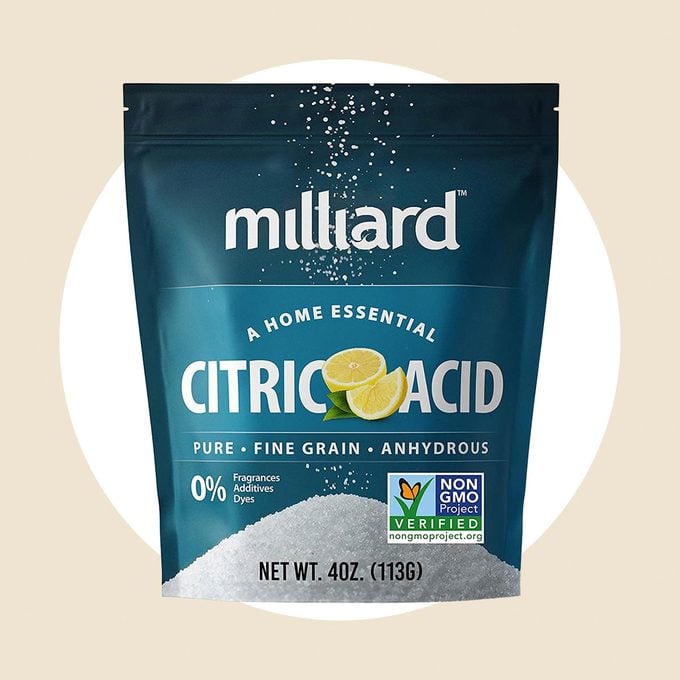Citric acid is the secret to enhancing citrus flavor when baking and cooking.
Our editors and experts handpick every product we feature. We may earn a commission from your purchases.
Learn more.


Citric acid is the secret to enhancing citrus flavor when baking and cooking.
Our editors and experts handpick every product we feature. We may earn a commission from your purchases.
Learn more.
For citrus lovers, there’s nothing better than a treat that’s well-balanced between tart and sweet. But sometimes baking with lemon or lime zest, or even juice, doesn’t quite cut it. To produce desserts that really pack a flavorful punch, adding citric acid can make all the difference.
A small amount of citric acid goes such a long way, whether you’re using it in a dessert recipe or enhancing a savory dish. But what is citric acid, and how exactly do you use it correctly? We suggest trying it in lemon frosting to get an idea of what it can do. After that first bite, you’ll understand why you might want to keep this clever ingredient on hand from now on.
Citric acid is found naturally in citrus fruits, but it can also be manufactured in powder form. Because it looks similar to salt, it’s also often called sour salt.
It’s common to see citric acid listed on the ingredients label for many processed foods. It’s a preservative often added to sour candies, beverages and many snack foods, extending a product’s life while also imparting acidity and flavor.
Citric acid can be used at home to enhance the flavor of a dish or baked good, while also balancing acidity. Because it comes in powder form, it’s easy to sprinkle a small amount into a dish. Citric acid can be added to your favorite lemon dinner recipe such as lemon pasta or ceviche. It’s also a great addition to tomato soup, compound butters, margaritas and more. It will add a kick of acidity to any dish or drink without adding liquid, making it a great replacement for vinegar or lemon juice.
Baking with citric acid is a great way to enhance the flavor of lime or lemon desserts. It can be stirred into lemon curd, mixed into a glaze or incorporated into a frosting. You can also incorporate citric acid into the batter of baked goods, but it’s important to remember that it will cause a chemical reaction with baking powder or baking soda, causing further leavening.


Looking for your new favorite lemon dessert recipe? This recipe makes 16 lemon cupcakes topped with lemon frosting. Just a touch of citric acid enhances the overall flavor in a big way.
Editor’s Tip: Citric acid may not be available at all grocery stores. You can find it easily on Amazon and at Walmart.
Preheat the oven to 350°F. Prepare a cupcake pan with paper liners.
In a large mixing bowl, combine the sugar, flour, baking powder, baking soda and salt. Whisk to combine. Mix in the eggs, milk, oil and sour cream. Stir in lemon zest.
Add the batter to the cupcake pan. Bake the cupcakes for 16 to 18 minutes. Once baked, remove the cupcakes from the oven and set them aside to cool completely
In a mixing bowl with a hand mixer, or using a stand mixer with the paddle attachment, cream the softened butter. Mix in two cups of confectioners’ sugar and milk. Gradually mix in the remaining confectioners’ sugar until the frosting forms. Mix in citric acid and lemon zest.
Use a piping bag fitted with a piping tip to frost the cupcakes. Sprinkle with additional lemon zest.